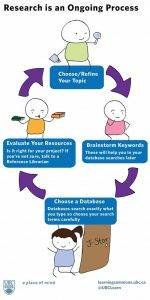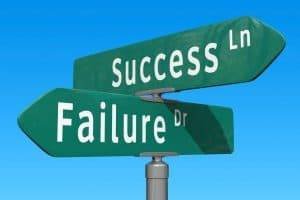How The Twelve Steps Help People Stay Sober Longer
The Research
The medical journal “Cochrane Database of Systematic Review” is a Worldwide Charitable Organization with headquarters in the United  Kingdom. Cochrane has groups in 43 countries made up of professionals in the medical field. The goal and mission of Cochrane are to provide unbiased data to assist people in making informed health decisions.
Kingdom. Cochrane has groups in 43 countries made up of professionals in the medical field. The goal and mission of Cochrane are to provide unbiased data to assist people in making informed health decisions.
In 2006 The Cochrane review published a review of the effectiveness of Alcoholics Anonymous (AA) based on eight available scholarly studies that included a few thousand participants. However in the year 2020, the quantity and quality of the research on Alcohol Use Disorder (AUD) treatment protocols have increased substantially. The 2020 Cochrane review, “Alcoholics Anonymous and other 12‐step programs for alcohol use disorder,” utilized twenty-seven new research studies, comprising 10,565 people. The studies included in the update examined a range of programs that differed in their approach and intensity and were compared against other programs and different treatments for alcohol use disorder.
The Players
Peer-run, peer-based, peer-driven, mutual support, and others are labels used to identify programs like Alcoholics Anonymous, it is also a label utilized to identify “Human Service: mental health and substance use disorder” agencies. Although this review compares methodologies such as Cognitive Behavioral Therapy, Motivational Interviewing, and Twelve-Step Facilitation (TSF) most treatment facilities in the United States couple these as a protocol if they identify as Twelve-Step Programs. Even though they identify as “Twelve-Step Based” treatment programs there is a contingency of agencies that utilize non-clinical, mutual help approaches for the treatment and recovery of Alcohol and Substance Use Disorder(s) as well. The review has taken into account both instances of treatment, treatment programs that do not subscribe to Twelve-Step Facilitation or protocols, and Alcoholics Anonymous.
This review is an important piece of work as it demonstrates the effectiveness of Alcoholics Anonymous and dispels the negativity aimed at the “Mutual Support” genre of recovery and treatment. For several years there has been negative information circulating throughout the media, social media and the general public about the effectiveness of Alcoholics Anonymous and it’s sister programs such as Narcotics Anonymous, Drugs Anonymous, and others.
Religion and Alcoholics Anonymous
Much of that misguided information is based on the “Religious” factor. There is no doubt that the Twelve-Steps were based upon the Religious process of “Atonement.” In fact, prior to Alcoholics Anonymous the AA Founders were exposed to and embraced by the Oxford Group, a Judeo-Christian group that utilized a Six-Step approach. There have been several objections by various “Consumer Protectors” about the court mandating individuals to attend AA meetings for the sentencing of individuals charged with drug and or alcohol-related crimes. They cite the “Religious” nature of AA. In fact, the number one criticism, top reason given by people that “dislike” or believe AA does not work is the prevalence of the reliance of “God” in the literature, the belief system of some members of AA, and thus the topics of discussion in AA.
What Are the Twelve-Steps?
Most people have heard the term, “The Twelve-Steps,” however, unless you have been exposed to them personally you may not know exactly what they are what they represent. As indicated above, they were written based on the process of “Atonement.: In simple terms the process of getting right with yourself and others. The Twelve-Steps were written in the years following 1935 when Bill Wilson met Dr. Robert Smith in Akron Ohio. The initial process was a “Six-Step” approach that was later converted to the Twelve Steps we know today.
THE TWELVE STEPS OF ALCOHOLICS ANONYMOUS
1. We admitted we were powerless over alcohol—that our lives had become unmanageable.
2. Came to believe that a Power greater than ourselves could restore us to sanity.
3. Made a decision to turn our will and our lives over to the care of God as we understood Him.
4. Made a searching and fearless moral inventory of ourselves.
5. Admitted to God, to ourselves, and to another human being the exact nature of our wrongs.
6. Were entirely ready to have God remove all these defects of character.
7. Humbly asked Him to remove our shortcomings.
8. Made a list of all persons we had harmed, and became willing to make amends to them all.
9. Made direct amends to such people wherever possible, except when to do so would injure them or others.
10. Continued to take personal inventory and when we were wrong promptly admitted it.
11. Sought through prayer and meditation to improve our conscious contact with God, as we understood Him, praying only for knowledge of His will for us and the power to carry that out.
12. Having had a spiritual awakening as the result of these Steps, we tried to carry this message to alcoholics, and to practice these principles in all our affairs.
Fallacy or Fact?
The real question is about functionalism, does AA work due to “God” or the process? First, we must recognize what the process is and then  we may be able to agree on the “Why.” Let’s start with an example if you have a problem that is damaging your life in any way what would be a logical first step? Identify the issue! You would need to come to terms with the issue and recognize the impact it is playing in your life. That would be what AA terms “powerless over alcohol.” Each of the Twelve-Steps can be seen in secular therapy as well. In other words, take the “God” out and work the process and recovery is possible. With that in mind, I have rewritten the Twelve-Steps in a secular approach in layman terms.
we may be able to agree on the “Why.” Let’s start with an example if you have a problem that is damaging your life in any way what would be a logical first step? Identify the issue! You would need to come to terms with the issue and recognize the impact it is playing in your life. That would be what AA terms “powerless over alcohol.” Each of the Twelve-Steps can be seen in secular therapy as well. In other words, take the “God” out and work the process and recovery is possible. With that in mind, I have rewritten the Twelve-Steps in a secular approach in layman terms.
In fact, the co-founder himself pointed out, “We must remember that AA’s Steps are suggestions only. A belief in them as they stand is not at all a requirement for membership among us. This liberty has made AA available to thousands who never would have tried at all, had we insisted on the Twelve Steps just as written.” Bill Wilson, Alcoholics Anonymous Comes of Age.
“The wording was, of course, quite optional, so long as we voiced the ideas without reservation.” Alcoholics Anonymous p.63.
In keeping with the spirit of the AA Founders suggestions, the following list of Alternative Twelve Steps is not designed to replace or change the original steps. The various alternative Steps are designed to assist an individual in developing a palatable method to recover based upon their personal beliefs or disbeliefs.
Secular break down of the Twelve-Steps by Dan Callahan, MSW
Step One: Have you ever used a drug or drank alcohol knowing that there would be consequences or that there was significant risk involved, based upon your past experience?
Step Two: At the basic level of recovery; do you believe that people before you have accomplished abstinence and recovery based upon these principles, and you have not been able to yet?
Step Three: Can you copy most of these successful strategies that these same people you have identified in Step Two, have accomplished? Are you willing to COPY them?
Step Four: Make a searching and fearless inventory of yourself; address all personal and internal potential roadblocks within yourself. Look for any potential negative stressors, anxiety provokers, or sources of irrational fear that has the ability to set you off and back into negative self-destructive behavioral patterns.
Step Five: Admit to yourself and another Human Being of personal significance the exact nature of what we have uncovered in our Fourth Step.
Step Six: By your actions and desire to live a productive life you become entirely ready to make better choices and become the positive and loving human beings that you are deep within.
Step Seven: Humbly seek reprieve from these burdens, by living an honest and productive life.
Step Eight: Make a list of all the people, places and things that you have harmed and become willing to make amends to them.
Step Nine: Make direct amends to these people except where you could potentially cause more damage than good.
Step Ten: Continue on our new path and take a daily personal inventory to monitor your progress and remain congruent with whom you truly are as a “Human Becoming.”
Step Eleven: Seek through Prayer and Meditation to improve your continued growth spiritually, mentally, emotionally, and physically.
Step Twelve: Becoming who you have always been and dreamed of becoming realize the significant improvement in your life as a result of these steps and principles. Share and carry this spiritual message to others recognizing that you cannot keep it if you do not give it away. Finally, continue to practice these principles of discipline in all areas of your life.
Failed Before at AA?
You may be thinking, heck AA never worked for me before. This sounds great but, it will drive me crazy listening to the AA guru’s that preach  the importance of God in meetings. How do I get a sponsor that has similar beliefs? What if I am an Atheist or Agnostic? Well, there are several answers to these questions but first, it starts with an open mind. Recognizing that there are answers and that “Mutual Support” works and works effectively.
the importance of God in meetings. How do I get a sponsor that has similar beliefs? What if I am an Atheist or Agnostic? Well, there are several answers to these questions but first, it starts with an open mind. Recognizing that there are answers and that “Mutual Support” works and works effectively.
Find a treatment center that is open to the process rather than pushing you to AA as a “must!” Look in the AA meeting list for AA meetings with the topic, “We Agnostics,” often you will find these meetings held at a Unitarian “Unity” Church. Listen in meetings for the member that doesn’t emphasize “who” their God is. You can also visit the “Agnostica” Blog and resource for secular meetings across the country. Listen intently and you can spot the “secular” AA members, they are there. Remember this is your life, this is your recovery and if you stay on the addiction path your life will probably be less accomplished and happy than you really want! So embrace recovery and live life to the fullest!
Conclusion
An important aspect noted in the history of the founders of AA was the flexibility in the identification of God for an individual personally. The account is documented in the “Big Book” during a conversation between Ebby Thatcher and Bill Wilson. At Bill’s dismissal of the “God” concept in Ebby’s discussion on how he is staying sober, Ebby recommends to Bill that he define god however he wishes! That was the opening people with religious blocks needed to open their minds to a process of recovery that has saved millions of men and women around the globe.
There is little doubt that the Founders wanted to ensure that everyone has the opportunity to recover. The chapter “We Agnostics” is an indication that they understood there are people with “god” issues, of course, the book’s goal seems to indicate that sooner or later the unbeliever will come around, be that as it may, do not fret, many people have recovered as Agnostics and Atheists and remained that way. If you embrace Twelve-Step mutual support you will recover, you will live a life of “Significance” and you will find and give “Love” to you and your supporting cast!











